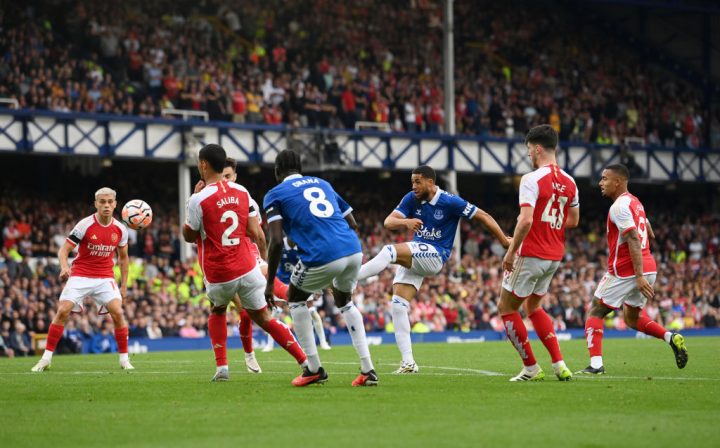The Premier League needs to wake up and smell the coffee: there is nothing sacrosanct about football matches that kick off at 3 p.m. on Saturdays, especially in an age when televised games are so ubiquitous. It is time to ditch the arcane rule that imposes a TV blackout of Saturday afternoon games – for the sake of the game as well as fans everywhere.
Richard Masters, the Premier League chief executive, confirmed last month that its next broadcasting rights deal – due to start in the 2025-26 season – could see a big rise in live games on TV, increasing from the current 200 to somewhere in the region of 270. Yet Masters once again ruled out getting rid of the Saturday 3 p.m. TV blackout because of concerns over the impact it could have on match-day crowds and those playing amateur football.
Such is the appetite for live viewing, Saturday afternoon kick-offs increasingly resemble fixtures that are football leftovers
‘We are still supportive of it for those historic reasons to protect the 2.15 to 5.15 window to protect participation and attendance, and we think it still plays a role.’ This is arrant nonsense, even more so coming from the boss of a competition that has happily driven a coach and horses through every one of football’s traditions in the chase for riches and success.
There is no definitive evidence that televising 3 p.m. Saturday games would damage football’s grassroots. The rule came into force in the 1960s when the Burnley chairman Bob Lord convinced other clubs that televising matches on Saturday afternoons would negatively impact attendances at lower league games. In fact, Lord wasn’t that keen on football being shown on television at all.
It is depressing to see the same argument being used decades later when the world of football has moved on so much. It is also rather insulting and patronising. Why would the supporter of a lower league club give up the chance to watch their own team play to watch another team, simply because that match is on TV? The impact on ticket sales at grounds is also likely to be minimal: the experience of going to watch a game live in the stadium is wholly different from watching it on TV.
The blackout rule leads to other absurdities. Television is forbidden to show the games live, yet live radio broadcasts are permitted both nationally and locally. Viewers of Sky Sports’ Soccer Saturday show must watch pundits excitedly commentate on games they can see in the studio but the viewer cannot. How daft is that?
Meanwhile, Saturday afternoon games are widely available to watch in places like the United States and across Asia – just not in the country where the actual match is being played. No other major footballing country imposes this form of rigid Saturday afternoon blackout, and such is the appetite from the broadcasters for the biggest fixtures to be shown live on TV that the Saturday afternoon kick-offs increasingly resemble fixtures that are football leftovers. This is hardly ideal.
The continuation of the 3 p.m. coverage restrictions will also mean having to find other time slots for the extra live games that are likely to form part of the next television deal. It probably means more matches kicking off at 7.45 p.m. on Saturday nights.
Ironically, this is likely to have a much bigger adverse impact on match day attendance than anything else. How are fans who travel to the game expected to get home on public transport? And all because of the daft and outdated blackout rule.
It is not unreasonable or particularly revolutionary to suggest that television viewers, who fork out substantial monthly subscriptions, should have the final say over how and when they watch their teams play. Football’s decision-makers need to produce fresh and compelling evidence – actual facts and figures – or commission new research backing up their claims that the Saturday TV blackout is in the best interests of the game and supporters. If not, they really need to move with the times and scrap it.







Comments